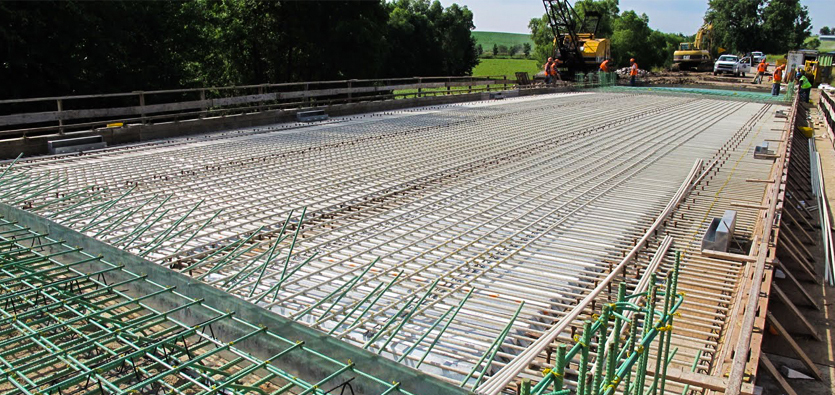Discovering the Benefits of Composites in Building
Discovering the Benefits of Composites in Building
Blog Article
Exploring the Uses and Advantages of Recycled Composites in Modern Industries
The combinations of recycled materials with sophisticated composite modern technologies offers an appealing method for boosting sustainability, resilience, and cost-efficiency across various fields. As industries seek ingenious remedies to address environmental worries and boost functional performances, the incorporation of recycled composites arises as a compelling choice.
Environmental Advantages of Recycled Composites
The application of recycled composites in modern sectors uses significant environmental benefits, adding to the reduction of waste and the conservation of natural deposits. By incorporating recycled composites right into producing processes, sectors can lower their reliance on virgin products, consequently minimizing the quantity of waste generated and the energy needed for extraction and manufacturing. This shift in the direction of using recycled compounds helps in diverting materials from land fills, alleviating the burden on waste management systems, and lowering greenhouse gas exhausts linked with traditional production practices.
In addition, the usage of recycled compounds promotes the conservation of natural deposits such as wood, minerals, and water, which are usually diminished through the removal and processing of resources (composites). By extending the life expectancy of materials with recycling, sectors can assist preserve environments and biodiversity by decreasing the demand for new resources. In general, the adoption of recycled compounds in modern industries plays a critical duty in advertising sustainability and reducing the environmental effect of production processes
Improved Longevity in Item Production
With a concentrate on longevity and toughness, integrating recycled composites into item manufacturing processes boosts resilience and sustainability. By utilizing recycled compounds, producers can develop items that are not just solid but additionally resistant to damage, making them perfect for long-lasting use in different markets. The combination of various materials in recycled compounds can often result in improved strength and toughness compared to traditional materials, giving an economical solution for creating lasting items.
One of the key benefits of using recycled composites in item production is the ability to customize the product properties to meet certain resilience requirements. By changing the structure and manufacturing methods, makers can tailor the recycled composites to hold up against harsh ecological conditions, hefty loads, or regular use without compromising on efficiency. This versatility in design and manufacturing permits the creation of extremely sturdy products that preserve their stability with time, decreasing the requirement for constant substitutes and ultimately adding to an extra sustainable manufacturing procedure.
Cost-Effectiveness and Economic Benefits
Including recycled compounds right into product manufacturing not just enhances longevity and sustainability but likewise provides substantial cost-effectiveness and financial advantages. Utilizing recycled compounds can bring about lowered product prices as recycled materials are often less costly than virgin materials. Furthermore, recycling composite products can decrease waste disposal costs and decrease the requirement for garbage dump space, adding site to general cost financial savings for sectors.

Development and Style Flexibility With Recycled Compounds
Utilizing recycled compounds in contemporary industries provides unrivaled possibilities for advancement and style adaptability. By integrating recycled materials into composite manufacturing procedures, companies can push the limits of typical layout restrictions and discover new possibilities. The adaptability of recycled composites permits the development of complicated shapes and frameworks that may not be possible with standard products.
One of the crucial benefits of recycled compounds is their ability to be built right into various forms, providing developers the freedom to explore special sizes and shapes. composites. This flexibility opens a world of creative chances, enabling the growth of lightweight yet resilient products that fulfill the certain needs of different industries
Additionally, the usage of recycled composites promotes sustainable practices and sustains the circular economy by reducing waste and reducing the ecological effect of manufacturing processes. This concentrate on environment-friendly style remedies aligns with the expanding pattern in the direction of sustainability in modern-day industries, making recycled composites a valuable resource for forward-thinking and innovative firms.
Applications Across Numerous Industries
Recycled compounds discover impactful and diverse applications across a wide array of markets due to their one-of-a-kind residential or commercial properties and sustainability advantages. The aerospace market advantages from recycled compounds in the production of aircraft parts, where the materials' strength-to-weight proportion is crucial for ensuring security and efficiency. The convenience and sustainability of recycled compounds make them important across numerous sectors, driving development and environmental stewardship.
Verdict
In verdict, the usage of recycled composites in modern-day sectors uses significant ecological advantages, boosted toughness in product production, cost-effectiveness, and financial benefits. Additionally, using recycled compounds straight from the source permits innovation and design versatility across various sectors. In general, the fostering of recycled composites provides a sustainable and practical service for meeting the requirements of the market while also reducing environmental effect.

One of the vital advantages of using recycled composites in product production is the capability to tailor the product residential properties to satisfy certain durability demands. Using recycled compounds can lead to reduced product expenses as recycled materials are frequently much less costly than virgin materials. The aerospace sector benefits from recycled compounds in the production of airplane parts, where the materials' strength-to-weight ratio is crucial for making certain safety and security and performance.
Report this page